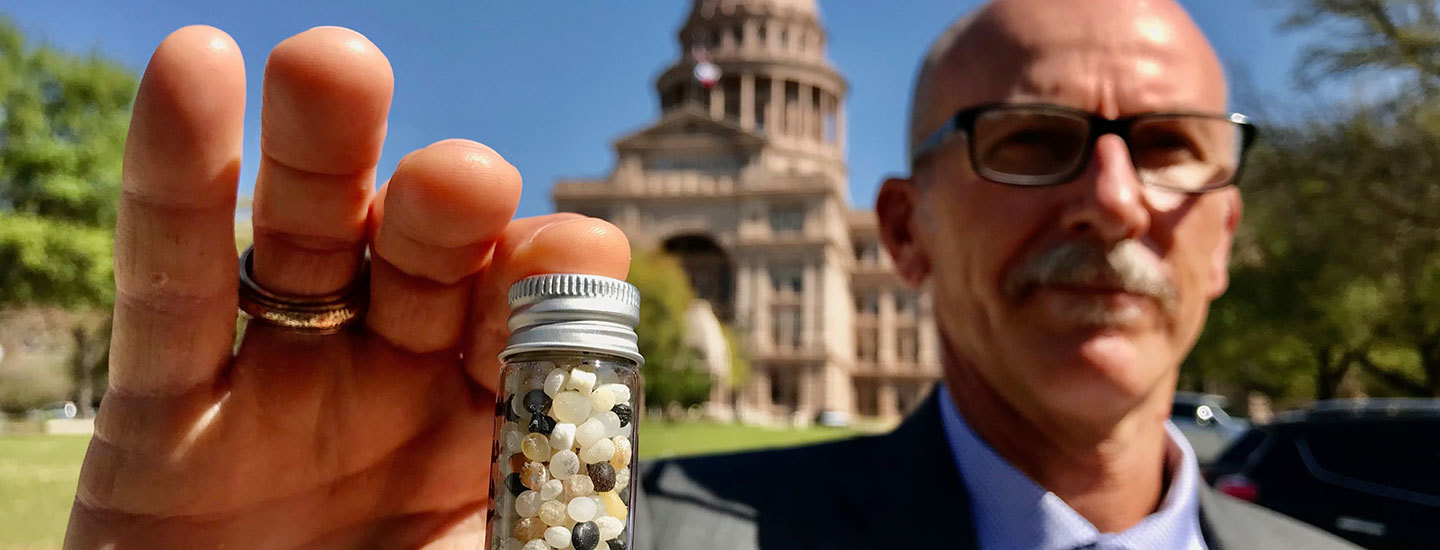
07.15.21
Activist Spotlight: Neil McQueen With the Texas Coastal Bend Chapter
By Surfrider FoundationQ: What is your current job or role with your chapter?
I’m the Vice Chair of the Texas Coastal Bend Chapter and have led our Skip the Plastic project since 2010.
Q: Why and when did you get involved with the Surfrider Foundation?
I originally got involved back in 1991 when the Santa Cruz Chapter was forming. I was looking for a way to give back to the ocean and Surfrider fit perfectly. I was working in the engineering / environmental field, so was able to contribute some of my skills to the chapter. We grew rapidly and tackled some big water quality issues. I helped to get our Blue Water Task Force lab up and running, and am happy that it continued long after I was gone.
After taking a few years off for some travel, surfing and sailing, I ended up coming ashore in Corpus Christi, Texas in 2003. I went to the first meeting of the Texas Coastal Bend Chapter and ended up diving in again! It’s been non-stop since then with beach access battles, lots of plastic pollution issues and most recently, opposing a major petrochemical industrial buildout that’s happening around our bays.
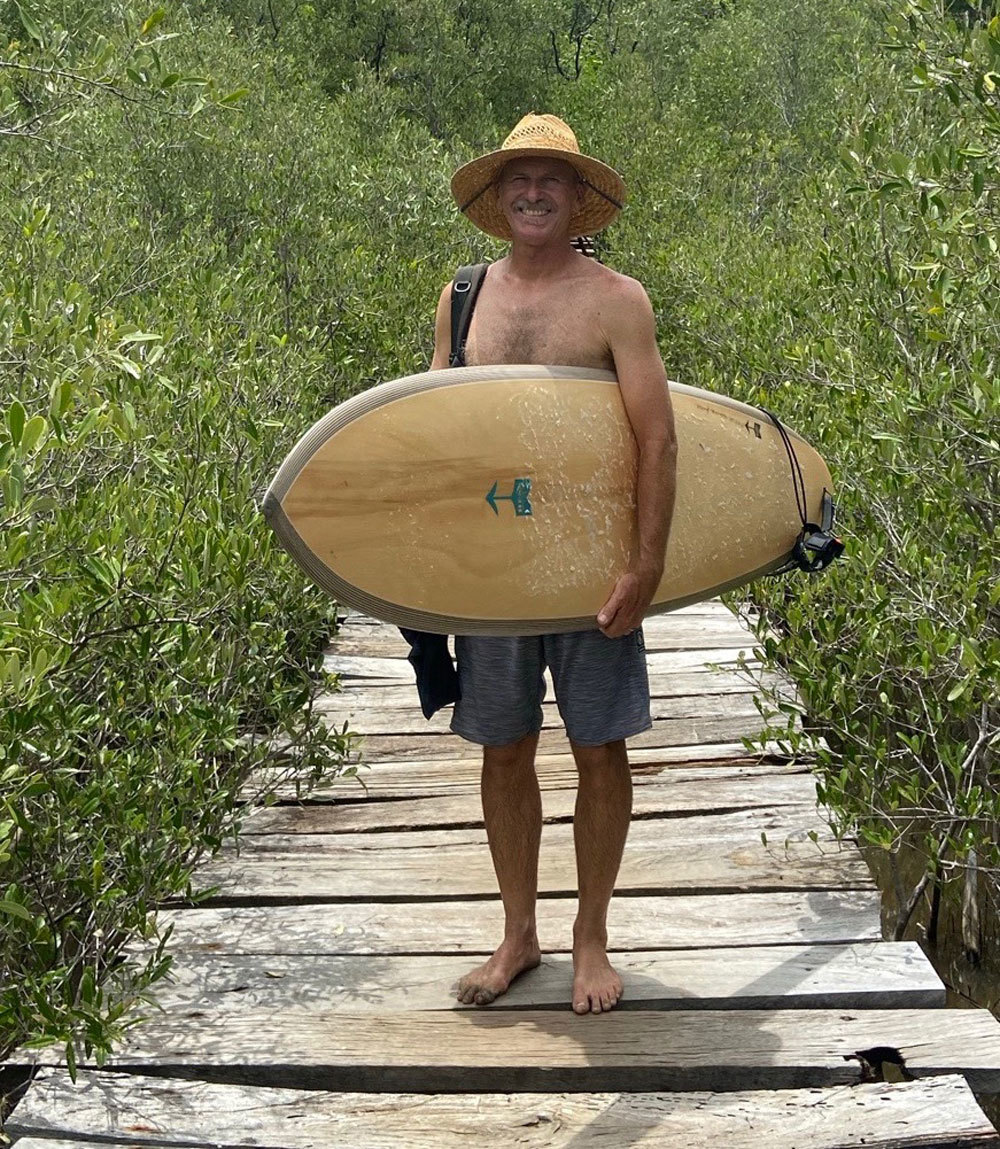
Q: What are some local issues that are affecting your ocean, waves and beaches?
We’re constantly working to protect public beach access. A lot of people are surprised but Texas has one of the best and oldest beach access laws in the U.S. It basically says that someone can own the land down to the water’s edge, but the public will always have the right of access on the beach up to the vegetation line in the dunes. Unfortunately, developers and some property owners are always looking for ways to chip away at it, so we have to stay on point to defend it.
Then there’s plastic pollution. Like all seas and the ocean, the Gulf of Mexico has its share of plastic trash, yet a lot of it ends up on Coastal Bend beaches due to the way the currents flow. In the summer, the currents bring coconuts and sargassum seaweed, but also flip flops, bottles, caps, and every other plastic thing you can think of from areas like Latin America. Then in the winter, it’s stuff that has floated down the Mississippi and Texas’ rivers. I’m seeing progress on some fronts, like greater public awareness and increased microplastics research by local scientists, but we have a long way to go on the policy side in Texas.
Q: What Surfrider projects have you worked on?
Marking storm drain inlets with the city’s stormwater department, plastic bag bans, too many beach cleanups to count, our Bag Hero and Cleanup Hero programs, helping at the annual Make Promises Happen Surf Camp for the Disabled and lately, working with our State Representative on the Texas Nurdle Bill and representing our chapter in the Coastal Alliance to Protect our Environment (CAPE), a coalition battling the industrial buildout.
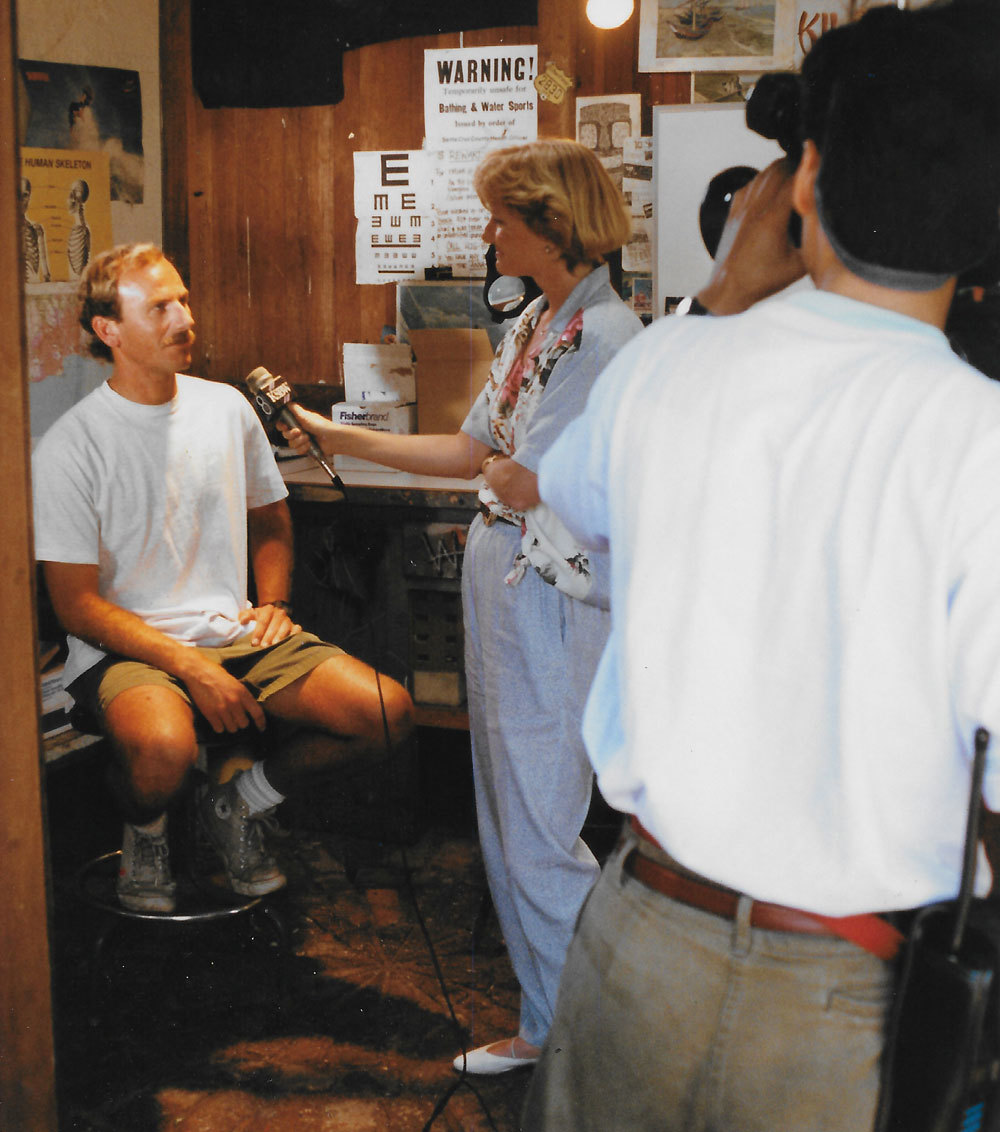
Q: What has been the highlight of your Surfrider experience (i.e., campaign, program, victory)?
In 2006, we won in a heated city election to prevent a developer from privatizing over a mile of public beach, but it’s really the empowerment that I’ve experienced and the people I’ve gotten to work with in Surfrider that have made it special. It’s really inspiring to see everyone give their time and work together as a team to help protect the world’s beaches and ocean. And I can’t begin to count all the friendships I’ve made through Surfrider.
Q: What is the most important thing you tell others about Surfrider?
That we’re truly grassroots because we’re in the water and on the beaches. We see the hazards that plastic pollution and industry are creating for dolphins, sea turtles and other creatures, and we know how to stand up and fight for them.
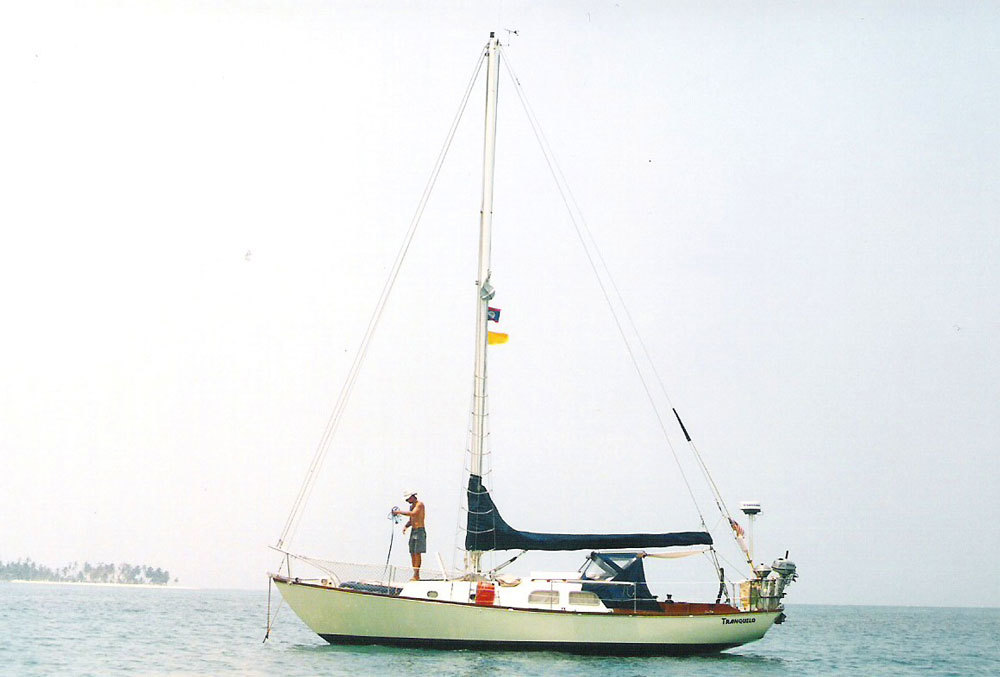
Q: Why are you a Surfrider coastal defender (or why is being a Surfrider coastal defender important to you)?
I’ve gotten to witness so many wondrous and beautiful things around the ocean, whether it’s long lines of pelicans gliding in formation over the waves, masses of hermit crabs trading shells every evening on a Mexican beach or humpback whales breaching near my sailboat. We humans are just one of many species on this planet, but we’re trashing it for all the other species. Somebody has to stand up for them and make some changes so we can all be around for a long time to come.
Q: Anything else?
Don’t Mess With Texas Beaches!
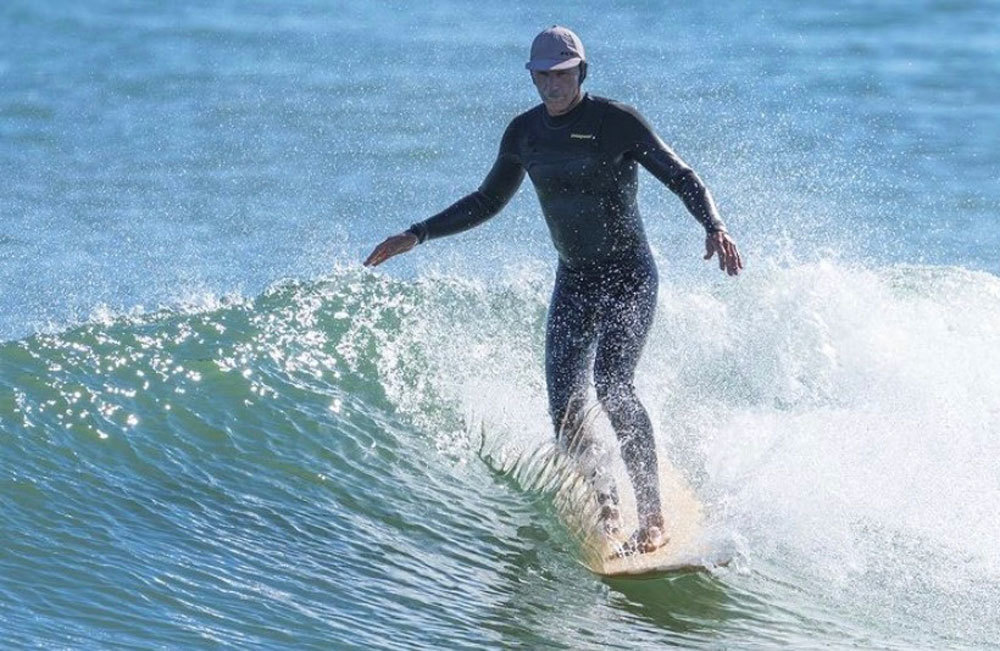
Surfing photo above shot by Phil Martinez
